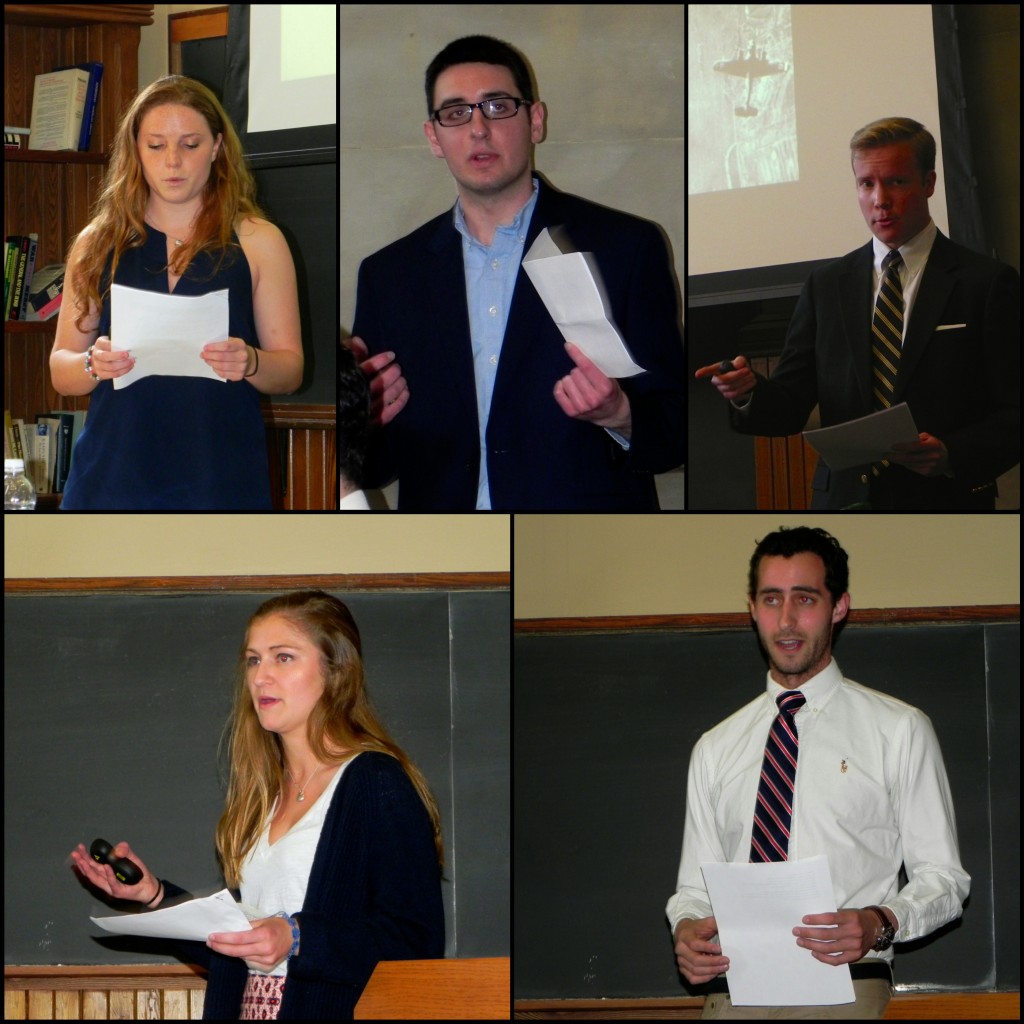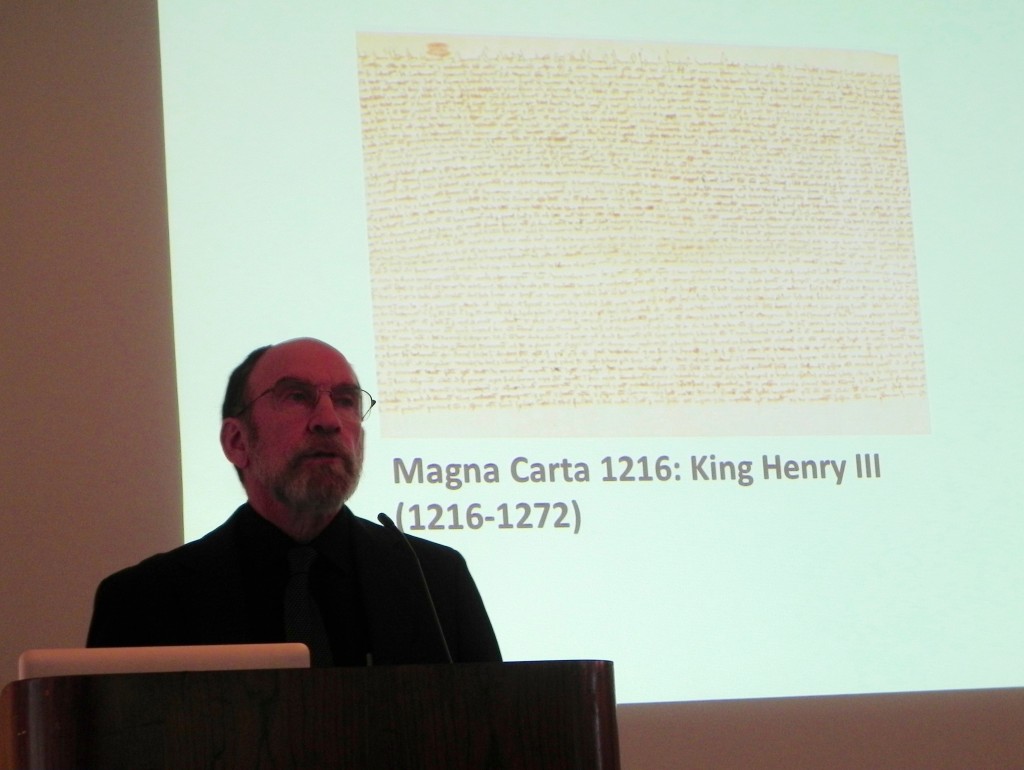J-Term in Paris: HIST 237: The History of French Wine
This course introduces students to the history of French wine. Students will gain a critical, contextualised understanding of how French wine has evolved over the past three centuries and how it has made its mark on French culture, society and politics. This intensive course incorporates the city of Paris experientially. Classes will be divided into short taught sections, in-depth discussions of primary and secondary literature, and three excursions: a professional wine tasting emphasising regional differences in France and the concept of terroir; a visit to a working vineyard to highlight the technical and spatial aspects of wine production; and a visit to a wine museum to explore the evolution of wine through material culture. Fee: $250.
Instructor: Jennifer Reagan-Lefebvre, PhD, is Associate Professor of History at Trinity College, where she teaches British history and a popular course on global wine history. She previously taught at the University of Cambridge and the American University of Paris. She is the author of Cosmopolitan Nationalism in the Victorian Empire (2009) and is writing a history of the wine trade. In 2016 she was honored with Trinity’s Hughes Award for Achievement in Teaching. Contact: jennifer.reganlefebvre@trincoll.edu
J-Term classes are $1,500. Additional fees apply.
History Professor Receives Prestigious Teaching Award

It is becoming apparent that the Trinity History Department is an incubator of teaching talent. At the 2016 Trinity College Graduation Ceremony held this past May, another historian (3 in 11 years) was honored. Jennifer M. Regan-Lefebvre, Assistant Professor of History, received the Dean Arthur H. Hughes Award for Achievement in Teaching, an award that recognizes excellence in teaching by junior members of the Faculty.
Congratulations!
Trinity International Hip-Hop Festival Program, April 7–10, 2016
From its creation in academic year 2005–2005 by a group of Trinity College students as a vehicle to “combat the disunity, segregation, and violence of Hartford, CT and Trinity College,” the Trinity International Hip Hop Festival always has close ties with several History majors and faculty.
One its co-founders, for example, was Jason P. Azevedo ’08, currently a career U.S. Department of State Foreign Service Officer specialized on Africa and Brazil.
Since 2009, History and International Studies Assistant Professor Seth Markle has served as the main academic advisor to Trinity Chapter of Temple of Hip Hop and annual Trinity International Hip Hop Festival.
As the coordinating group has put it, from the beginning the festival’s main strategies and goals have been using a “the historically education-oriented and politically revolutionary medium — Hip Hop – and focusing on its global potency and proliferation, the Trinity International Hip Hop Festival works to unify Trinity College, the city of Hartford, and the Globe.”
This year’s program, includes lectures and panel discussions with a variety of scholars, artists, and community activists; film screenings, graffiti and photo exhibits, workshops, and performances, including Dance Event / B-Boy Battle on Friday, April 8th (7pm–2am), the Saturday April 9th (8pm-2am) Hip Hop Concert, featuring Rakim and several other MCs and DJs. The festival ends on Sunday, April 10th with a DJ showcase and the Iron Poet Slam Competition.
You can find the Festival’s FULL PROGRAM here: 2016 Program for the Trinity International Hip Hop Festival – We hope to see you there!
Mead Lecture & Student Reactions
On Tuesday, October 20th, Dr. Stephen D. White, Candler Professor Emeritus of Medieval History at Emory University and Visiting Professor at Harvard University delivered the History Department’s annual George J. Mead (Class of 1937) Lecture: “Magna Carta: How a Total Failure Became “the Greatest Constitutional Document of All Times.”
The Mead Lecture in History, established by a bequest in 1952, is Trinity’s most prestigious endowed annual lecture. Previous lecturers have included James McPherson, Philip Curtin, Alan Samuel, and E. P. Thompson. The fund was established in honor of George Jackson Mead of Bloomfield, Connecticut. He graduated from Choate preparatory school and the Massachusetts Institute of Technology.
Mr. Mead was a founding partner in the Pratt & Whitney Aircraft Company and the designer of its Wasp engine, whose widespread use and reliability transformed military and commercial aviation in the U.S. He later served as an advisor to President Franklin D. Roosevelt, guiding wartime aircraft production throughout the nation, and was awarded the President’s Medal of Merit in 1948. His intent was that the Mead Fund support lectures, prizes, and other programs to stimulate the study of government, economics, and history, in order to better prepare students for government service. Mr. Mead received an honorary doctorate from Trinity College in 1937.
Senior Thesis Presentations, Class of 2015

On Thursday, April 30, 2015, the history thesis writers presented their research findings to the department and other guests. For more than a year, five students have been researching and writing and, in the process, forging bonds of friendship among each other and mentorship relationships with history professors. Their research projects explored a variety of themes, and served as critical interventions in the study of American slavery, Nazism and the Third Reich, Mediterranean city-state formations, the U.S. and World War II, and international travel and literary production.
The names of the students, the titles of their projects, and the names of their advisors are as follows:
Tyler Green, “A Connecticut Yankee in London: Mark Twain’s Rise fromd Humble American Humorist to Literary Great”
Thesis Advisors: Profs. Lefebvre & Hedrick
Duncan Grimm, “Forging an Alliance of Purpose: John Gilbert Winant, Edward Roscoe Murrow, and Creating an Anglo-American Worldview”
Thesis Advisors: Profs. Regan-Lefebvre & Hedrick
(more…)
A Field Trip to Historic Deerfield, MA
On March 9th, Prof. Wickman took undergraduate students enrolled in his seminar course, “HIST 311: Place in the Native Northeast” to Deerfield, MA. Having read scholarship and primary sources related to the 1704 Deerfield Raid prior to their field trip, Prof. Wickman’s seminar students walked around Historic Deerfield to deepen their sense of place there. In the first photograph, Prof. Wickman and his students are standing next to a sycamore tree that stood within the stockade at the time of the raid. The other two photographs (below) show the 18th-century Wells-Thorn House, which the class toured to get a feel for changes in colonial architecture and settler lifestyles in the decades after the raid.
Prof. Sam Kassow Wins Award
February 18, 2015 – Samuel S. Kassow ’66, Charles H. Northam Professor of History, was honored this week in Warsaw, Poland, for his service to Polish Culture. Polish Minister of Culture and National Heritage Malgorzata Omilanowka, presented a medal to Kassow in a ceremony on Monday, February 16.
Kassow served as lead historian for two of eight galleries of the new POLIN Museum of the History of Polish Jews, which opened in October 2014 on the site of the Warsaw Ghetto uprising. His 2007 book, Who Will Write Our History?, is set to be adapted for the screen by director Roberta Grossman and executive producer Nancy Spielberg. Kassow is also in the process of completing a highly anticipated book called Listen and Believe: The Ghetto Reportage of Peretz Opoczynski and Jozeph Zelkowicz, to be released this year by Yale University Press.
Mead Lecture in February
On February 17th, Professor Heather Cateau will be coming to Trinity to give a lecture on Connecticut-Caribbean relationships throughout history, ranging from the 18th century to modern day relationships. Professor Cateau will be coming to Trinity to give the Mead Lecture in History, Trinity’s most prestigious endowed annual lecture which was established in 1952 by George Jackson Mead. Professor Cateau is a senior lecturer in Caribbean History at the University of West Indies’ St. Augustine Campus and the Dean of the Faculty of Humanities and Education. Professor’s Cateau’s latest publications are Beyond Tradition, co-edited with Rita Pemberton and The Caribbean in the Atlantic World, which was co-authored with John Campbell. Her recent work deals with plantation and enslavement systems in the Caribbean.
Professor Cateau’s lecture, entitled “Caribbean-Connecticut Connections from the 18th Century to the 21st Century,” discusses the range of economic, social and other connections that existed between Connecticut and the English speaking islands of the Caribbean, Jamaica, Barbados, and Trinidad and Tobago. The basic thrust of the lecture is that the immigration from the West Indies to Connecticut, especially Hartford, is only the modern form of the historical connections between Connecticut and the West Indies, a product of the 20th and 21st centuries. The historical connections between the two stretch back to before America was an independent nation in the 18th century. In the 18th and 19th century, the relationship between the two involved many people from New England coming down to the West Indies, slave trade, and commerce between the two.
Cody Patrina’s Research
This summer I was given the opportunity to conduct research for the Simsbury Historical Society located in Simsbury, Connecticut. My research was centered on the Native Americans who lived in this area before, and at the time of settler contact. The goal of my research was to find out as much as possible about the tribes that lived and interacted with the settlers. I put together a presentation and, a WordPress informational and bibliographic site, and assisted in finding useful information for the town of Simsbury’s upcoming celebration in the sSpring of 2015. My application to the Colin Leroy ’10 Research Fund was generously accepted, and the grant funded my research.
As mentioned, this internship involved studying the Native Americanss in the Simsbury region called the Massacoes. With no pre-set agenda, I delved into the research with a broad plan to learn as much as possible about the archaeology, history, lifestyle, and relationship with the surrounding environment and with the settlers. I generally found information on all of these topics.Gaps in the literature did exist, such as indications of highly distinctive cultural practices to that would have set the Massacoes apart from Native neighbors and detailed correspondence (not including deeds) with the settlers. What I did find included information about a small tribe living amongst major tribal powers with close ties to the Farmington River. This tribe played a major role in the formation and eventual incorporation of Simsbury into Connecticut. Through local archaeological finds, it is possible to imagine the Massacoes’ presence in this region.
To complete my research I traveled to various libraries, schools, historical societies and museums. The locations include Trinity College’s Raether and Watkinson Library, the Simsbury Historical Society, the Simsbury Public Library, the Connecticut Historical Society, the Institute for American Indian Studies, the Mashantucket Pequot Museum and Research Center, the Salmon Brook Historical Society, the Windsor Historical Society and the Yale Sterling Library. I met several experts such as Dr. Kenneth Feder, Dr. Marc Banks, Dr. Lucianne Lavin and Dr. Eileen Fielding who helped provide me with facts on the history of the Native Americans and the ecology of this region. I also received counseling from my adviser, Professor Wickman, and also worked closely with Rick Wagner and Joe Buda from the Simsbury Historical Society. I would like to thank all of these individuals for giving me advice, counseling, time, and the Colin Leroy ’10 Research Fund for making this possible.
By Cody Patrina








